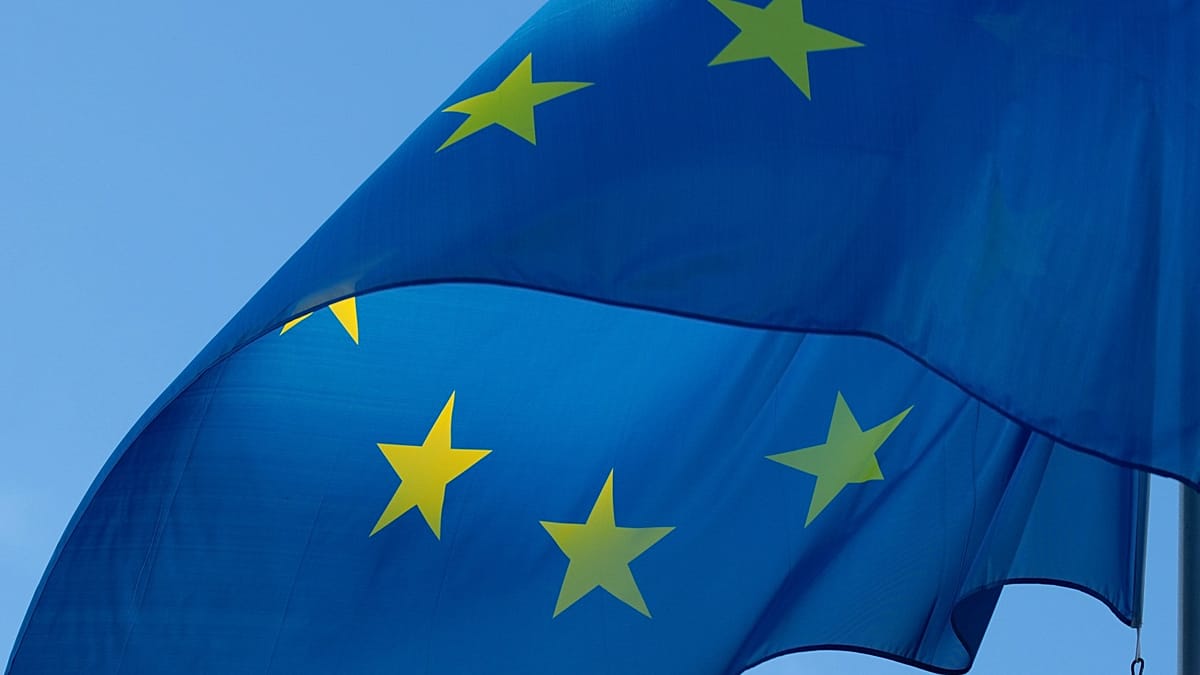To join the European Union, countries must align with the acquis, the collection of laws, regulations, standards and policies of the 27-member bloc.
This includes technology and digital infrastructure requirements, such as digital wallets and online government services, as well as cybersecurity defences that match the rest of the EU and regulate emerging technologies such as artificial intelligence (AI).
As Euronews prepares to host its EU Enlargement Summit, we wanted to take a look at how candidate countries are doing in some areas of technology to meet European Union standards.
Digital wallets
In 2024, the European Union passed a resolution calling on member states to build digital wallets over the next two years as part of a broader offering of online services to their citizens.
Digital wallets are a way for EU citizens to access their digital IDs to prove who they are and store, share, and sign important documents.
The wallets must comply with all EU rules on data sharing and with privacy protection under the General Data Protection Regulation (GDPR).
Some of the EU candidate countries, including Bosnia and Herzegovina, North Macedonia and Moldova, have or are trialling digital wallet apps. By 2026, Ukraine, Serbia and Albania will have digital wallets.
In Moldova’s case, it is building its wallet with European Union assistance through a program called ‘We Build Consortium’. The country is building a documents tab in its online government platform called EVO that will be the wallet and is piloting an electronic signature application within the app.
By the end of the year, North Macedonia says it will have a “super application” called m.Uslugi, which will also offer its citizens deadline reminders, a digital inbox and a place to store all of their documents.
Meanwhile, Albanian media reported that Prime Minister Edi Rama said that the country’s digital ID will be built by a state-owned company called Identitek that will let citizens use their government ID on phones or computers as multifunctional wallets.
Cybersecurity
Another area where countries needto comply is with several cybersecurity laws, such as the Network and Information Systems (NIS) directives, which unify enforcement across 18 sectors.
Among the requirements is that each country create its own national cybersecurity strategy, along with a list of essential services that require additional protection across many sectors, including energy, transport, healthcare, finance and digital infrastructure.
Under the EU’s Cybersecurity Strategy, countries also have to be ready to provide threat intelligence and assistance to other EU members should there be a major attack.
Ukraine demonstrated this in a 2023 accord between its cybersecurity coordination centre and the EU’s Agency for Cybersecurity (ENISA) to build up more professionals in the field and to exchange information.
The EU also set up a cyber lab for the Ukrainian Armed Forces and signed the Tallinn Mechanism initiative to support short and long-term cyber capacity building in Ukraine.
Elsewhere, Albania, Montenegro, Turkey, Georgia, Moldova and North Macedonia all have national cybersecurity strategies that align with some, if not all, of the EU’s directives.
For example, for digital governance, Moldova is also joining ENISA’s upcoming cybersecurity reserve, a group of trusted providersacross the bloc that will be able to respond during a significant or large-scale cyber attack.
Montenegro’s national strategy includes the creation of a Centre for Cybersecurity Capacity Building for the Western Balkans in 2022 as a joint project with the French and Slovenian authorities.
However, not all the strategies are compliant with EU legislation. The Turkish strategy came under fire from the country’s opposition, who reported that it could enable broad surveillance and restrict free speech, according to local media.
Serbia is working on a cybercrime strategy with EU support to address high-tech crime and the use of electronic evidence.
Emerging technologies
One of the EU’s newest regulations is the EU AI Act, which sets out a risk-based rule book for artificial intelligence systems.
AI used in fields such as education, employment, healthcare and law enforcement will also have to meet strict requirements on safety, transparency, and data privacy.
Countries will also have to set up national authorities to ensure compliance with the rules and that any AI system they develop is auditable and can be traced.
Albania, Moldova, Serbia and Ukrainehave AI strategies in place, but so far, no legislation has been passed.
Albania’s strategy is to use AI in the energy sector, for procurement, and to combat tax evasion, local media reported.
Tirana has also established what it says is the world’s first AI minister and soon-to-be 83 political assistants that will help politicians with their daily administrative and support work.
The minister, named Diella, is in charge of making all the decisions on public tenders, which Prime Minister Edi Rama has said will make them “100 per cent corruption-free”.
However, critics of the AI minister told Euronews that the model could exhibit biases, like other AI models, which could influence its outcomes.
Alongside a national strategy, Serbia has put in place ethical guidelines for AI adoption and a specialist councilthat is working on the country’s formal AI legislation.

